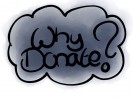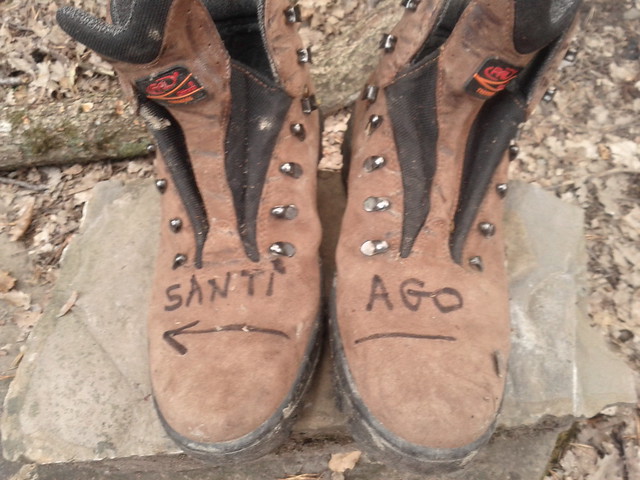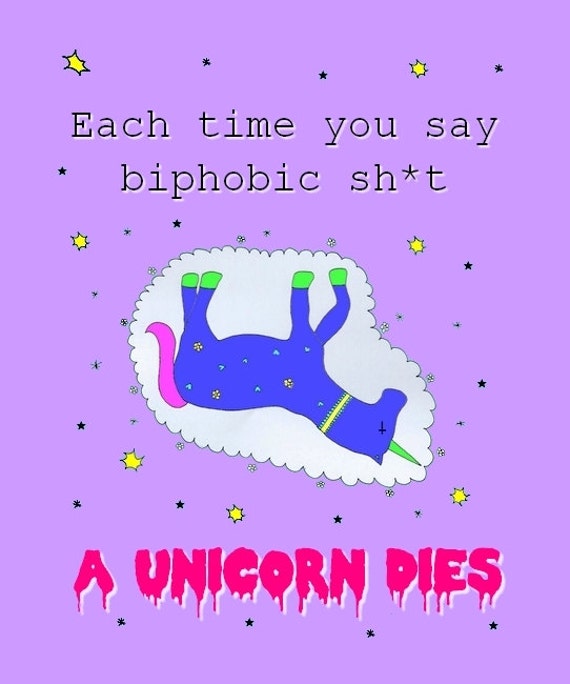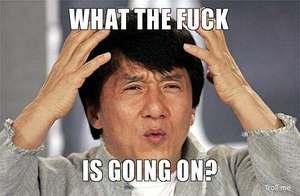Dear Dan Savage,
It pains me to say this. I like you. I don’t think you’re perfect, or have any obligation to be. I don’t think you have a responsibility to be an official representative of everyone with a smidge of queerness in the world. I don’t agree with everything you say- not a bit!- but overall you seem like a decent enough sort. That, and you’re clever, funny, and I think that, overall, you do a lot of good. Also, your podcast keeps me entertained long enough to get a bunch of housework done every week. Me and my laundry say thanks for that, by the way.
It pains me to say it, of course, because as someone with a tendency to run his mouth on things (something I can well identify with), when you get things wrong it can be.. shall we say spectacular? But I appreciate that you don’t silence dissent, that you acknowledge that you piss people off, and that most weeks you even run some of those pissed-off voices on your show. Good job with that, by the way.
Dan, if you’re reading this? I’ve got a bone to pick with you today. This is where I’ll become one of those hordes of angry bisexuals that you keep hearing from. I’d appreciate if you hear me out, though, before dismissing me as just another carrier of the Angry Bisexualist Gene. I mean, after all the time I’ve spent hearing you out, it’s the least you can do. Also? Dude, you know how many SuperQueer™ Points I’ve just lost by admitting that I have your podcast queued up on my iTunes. And that I still use iTunes (I’m lazy, okay?). I’ll never hear the end of this one.
The other week, you were talking about bisexuality. As you do. By the way? Thanks for changing your mind on the whole business of the existence of male bisexuality. And thanks for having bi people of all sorts of genders on the show- both to talk about bi things and to discuss entirely different topics. Huzzah for being fully-rounded people who aren’t just showing up as tokens to talk about one small aspect of ourselves!
But while we do exist now, however, it seems that we- The Bisexuals- are still letting the side down. One of the arguments that you’ve been making lately is based on quoting stats that indicate that bi people are significantly less likely than lesbian or gay people to be fully out. I’m not sure what the exact numbers are (or where you got them), but I gather that it’s something along the lines of 4/5 of L and G people being out, as opposed to only 1/5 of the Bs.
According to you, this means that bi people have an increased responsibility, as a group and as individuals, to come out already. Lesbian and gay people are out, so why not us? If LG people can, as you would say, pussy up and deal with the consequences of coming out, then bi people need to get off our collective asses and do the same thing. I’ve heard you (briefly) acknowledge that bi people can be on the receiving end of hassle from LG as well as straight people. But the solution is the same- bi people need to come out, so that our voices can be heard and we can be represented.
Here’s where things get complicated. I don’t deny that coming out is one of the most powerful tools we have. I’ve been openly bi for almost half my life (a terrifying thought). I can’t imagine what my life would be like if I wasn’t out- I’d be missing many of the people I call family, I wouldn’t have had the chance to learn half as much as I have, and I wouldn’t have been able to do my bit for The Cause. That, and I’m quite frankly useless at lying, so I doubt I’d have managed to be closeted very long.
I also think that, when it comes to being out, bi people are in a unique position to challenge the idea that there’s anything even faintly superior about heterosexuality. If I fall in love with a woman, it’s not because of any lack of socially-more-acceptable options. It’s not that I can’t help it. It’s that love (and sex, and relationships, and all of it) is awesome, regardless of the gender(s) of the people involved. None of this “we can’t help it” crap. I could help it if I wanted to, and I wouldn’t change what I am for the world. I bet we can agree that that’s pretty damn powerful.
So yes. On one level, we do need more bi people to come out already. We need more queer people of all kinds to come out already.
Where you and I disagree is on how to make that happen.
Here’s the thing. When you say that bi people need to come out already, it feels like that statement comes with an underlying assumption that we’re some kind of monolith. Like we’re a united group of people who have made the decision to hide 4/5 of our orientations from the wider world.
Dan, you know better than that. You’ve said yourself that one of the things you appreciate so much about the LGBTQ community these days is how much we disagree with each other. We’re a big, diverse group of people from every background in the world with feck-all in common aside from a shared exclusion, and the more successful we are in fighting that the less we’ll feel like we need to put forward a united front.
Y’know what’s telling, though? That in one group within our umbrella, being out is no longer the preserve of hardheaded loudmouths like you and me with more stubbornness than sense. But in another? It seems like the vast majority of people simply aren’t taking that step.
You could say that that’s because us Bs prefer to retreat into comfortable assumed heterosexuality. I think that that’s a lazy answer, though. It’s based on a few stereotypes about bi people that, in all honesty, bug the hell out of me- the idea that bi people somehow choose who we love, and the idea that we’re duplicitous, dishonest people.
Dan, you’ve fallen in love. You even went and married someone you were in love with. And you listen to phone calls and read letters every day (or however often you do that- I ain’t policing your schedule) from people who do profoundly stupid-ass things for love. Or lust. Or infatuation. Do you really think that 4/5 of bi people are simply immune to the universal human tendency to be blithering idiots when we’re head over heels? Come on. Bi people are the same as anyone else. We fall in love, lust and infatuation with people, and we have precisely the same ability (or likelihood) as anyone else to deny or suppress that.
Instead of making this all about bi people, let’s see if there isn’t somewhere else we can go to see why bi people are a hell of a lot less likely than their lesbian and gay counterparts to be out.
There are more L&G people out these days than even a short few years ago. Is that because the gay and lesbian Borg decided collectively to come out? Or is it because many thousands of people worked their butts off to make spaces for them to come out to? We’ve been reaching out for years, building communities, creating visibility, letting people know that they’re not alone and that there are people who will love and appreciate them for who they are, and give them the support they need if they do end up turfed out of their homes, families and communities. Things aren’t perfect yet, but for many they’re a lot better than they were. Not because queer people are intrinsically stronger, as individuals, than we used to be. Because some of us were able to help make things just a little better for some of the rest of us, and we kept chipping away, bit by bit.
Come Out To Where?
Dan, when you talk to queer kids from crappy homophobic communities, there’s a thing that you always tell them to do: work your ass off to get out of there. Get thee to a college or a big city where you can find a community of people who’ll love and support you as you are. Make your own damn family. Because you know as well as I do that coming out isn’t something that can happen on its own. We need somewhere- some community, some people who love us- to come out into, especially if we are to stay out.
There’s a piece of research just out that’s important here, on attitudes to bisexuality among people of different orientations. Here’s some key quotes- emphasis is mine.:
[R]espondents were generally negative in terms of their attitudes toward bisexual men and women, with almost 15 percent of the sample in disagreement that bisexuality is a legitimate sexual orientation… Of note, respondents who identified as gay or lesbian responded significantly less positively toward bisexuality than those identifying as bisexual, indicating that even within the sexual minority community, bisexuals face profound stigma. In addition, these findings indicate that male bisexuals likely suffer more stigma than female bisexuals.
Dr. Friedman explains that when a bisexual person perceives that his or her sexual orientation is not recognized by peers, it can cause the person to feel socially isolated and unable to talk openly with friends, family and school mates.
“Having hard data to back up why a bisexual person might feel the need to be secretive about sexual orientation, something that can lead to higher depression and many other negative health outcomes, is very useful to people trying to fight stigma and marginalization,” said Dr. Friedman.
And that’s not all. This factsheet from Rainbow Health Ontario has links to oodles of studies from the US and Canada showing that, while L&G people have worse mental health and are more likely to be victims of abuse then their straight counterparts, bi people fare even worse than L&G folks. And when it comes to what our communities could do about that? I’ll let them tell you- again, emphases are mine:
Research on LGBT populations has found that a sense of community belonging can
buffer the effects of minority stress… Due to biphobia and monosexism, bisexuals
may lack access to community support. Research in both Canada and the US has
found that bisexuals feel marginalized by heterosexual, lesbian, and gay
communities. Bisexual-specific support, which has been found to reduce the effects
of biphobia, is particularly lacking.
Owch.
And there, you see, is the problem. It’s one thing to tell people that they should, if it’s at all feasible, come out. It’s another thing entirely to do that when research shows clearly that the very communities that give lesbian and gay people a place to come out to and the support they need? Not only don’t do that for bi people- but can actively marginalise them. Speaking as someone who has been openly bi for half my life, and who has been facilitating bi safer spaces for several years now? The story I hear time and again- one of the many stories that breaks my heart every time I hear it, over and over again- is from people who, despite being part of queer communities, never had a space where they felt safe being themselves.
You could say that bi people should “just” go make our own communities. I’m sure you see as well why a minority within a minority reinventing the wheel feels a little.. Well, it feels a little People’s Front of Judea to me, if you know what I mean. There’s already a B in LGBT (and a T as well, but that’s a whole other conversation for a whole other day). And you know as well as I do that the lines between LG and B are not always clear-cut, often blurry, and occasionally subject to change without notice. Given that we live in a world that’s often hostile to all of us queers, the least that we can do is be a little kind to each other.
So yes, encourage bi people to come out. Let’s all do that! And in the meantime, let’s make sure that when bi people do come out, that our communities- which were built by bi (and trans) people as much as by lesbians and gay men- provide more than a literally half-hearted welcome to them.
And while we’re at it? When bi people come out, we need to believe them.
I know you are, but what are you really?
I know what you’re going to say. I’ve heard it many times before. You’re going to say that of course you accept that bi people exist. But that if someone comes out as bi at a younger age, there’s no way to know that they won’t be one of the many people who use the identity as a transitional one, and will come out as gay eventually.
On one level, you’re right. There’s no way to know that.
There’s also no way to know that the teenager coming out as gay won’t amend that to bi a few months or years down the line. Maybe that seems less common from a gay perspective, but as someone who spends a lot of time talking to bi people about their stories? It’s very common. And people do it for exactly the same reasons that people that they transition through a bi identity to gay- because they’re still working things out for themselves. Or because they feel like it’s a safer space to be. Or because for a while it seemed like the truth.
For me- because for a little while, I was one of those people- it felt like all of those reasons and more. I was a scared, confused kid (who isn’t?) who dearly wanted to feel secure about something (who doesn’t?). I came out as bi, then started calling myself gay. After a while, I realised that wasn’t right, returned to bi, and have been there (with a side order of queer) ever since. I could talk about my reasons and how it felt all day, but for the moment let’s just stick with this: I, and many bi people I know, stopped over in gayville on our ways to our identities. And before you ask, I’m talking about people of all sorts of genders here, not just women.
Like I said, though, that’s a topic that could go on all day, so let’s go back to the big topic: getting the bi people out already.
One of the profoundly annoying things about being out as a bi person, you see, is the way you keep on having to defend yourself. And not just in the ordinary way that all of us queer folks have to defend ourselves from the homophobes of the world who figure we’re all a bunch of filthy sinners (blah blah blah ad nauseum). As a bi person, you don’t just have to defend being queer and also a decent human being. You have to deal with the fact that, unless you give sufficient proof, nobody will believe you.
Me, I have it easy. I can provide references for ex-partners of all sorts of genders who would be only too happy to verify that I did, in fact, fancy the pants off them. I also give talks, run workshops and write articles about bisexuality. Google my name, and it’s right there in the first couple of results. I still find it harder to be openly bi than openly queer. People still, with the absolute best of intentions, assume I’m gay all the time. If I sometimes have a hard time being out, how much trickier must it be for people who don’t get to say things like “Sorry I can’t make it to [event], I’m just giving a talk on bi awareness this evening”?
This isn’t because anyone has something against bi people or is trying deliberately to erase us. It’s just that, in people’s minds, queer=gay and evidence to the contrary simply slides by. Remember last week, when Tom Daley and Maria Bello both came out as being in same-sex relationships? Remember how both of them mentioned things about different-sex attraction (crushes, partners), and both of them ended up reported as coming out as ‘gay’? If an article in the New York Times, or a YouTube video by an Olympic athlete, talking about fancying people of different genders isn’t enough for people to assume non-monsexuality, then what on Earth is?
Again, you don’t just have to believe me. A couple of Canadian researchers, Milaine Alarie & Stéphanie Gaudet, published a brilliant article this year. It’s called “I Don’t Know If She Is Bisexual or If She Just Wants to Get Attention”: Analyzing the Various Mechanisms Through Which Emerging Adults Invisibilize Bisexuality“. It’s worth reading the lot, but in short, there are four mechanisms they highlight: “(1) ignoring bisexuality, (2) depicting bisexuality as temporary, (3) making it almost impossible to be a ‘real’ bisexual, and (4) devaluing bisexuality”.
Dan, it’s not just that people aren’t taken seriously when they come out- which is, in itself, a major disincentive to going through the whole damn thing again and again. It’s that there are multiple ways in which coming out and being out is made more difficult for bi people than our lesbian and gay counterparts, how both the orientation itself and our right to it are questioned, and how even clear statements indicating attraction to multiple genders are sometimes ignored entirely.
Listen, you and me both agree that the world is a better place when people of all orientations (even straight people!) are able to be out and open about who they are and who they love and fancy. You’ve worked your ass off for decades making it easier for lesbian and gay people to take that step. All I’m really asking is that you understand that, just like for lesbian and gay folks, the reasons that bi people are able to come out are as much to do with everyone else- be they straight, gay, asexual, or even other bisexuals- as the person making that decision. All I’m asking is that, as well as encouraging bi people to come out already, you encourage gay people to lay off the biphobia in queer spaces, and everyone to quit questioning our right to exist.
It’s the least you can do.











